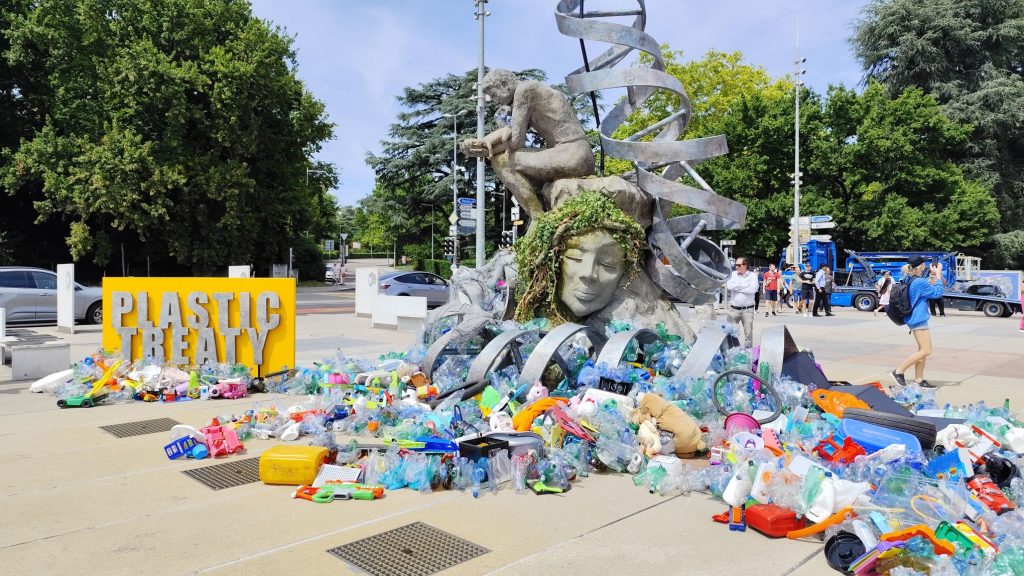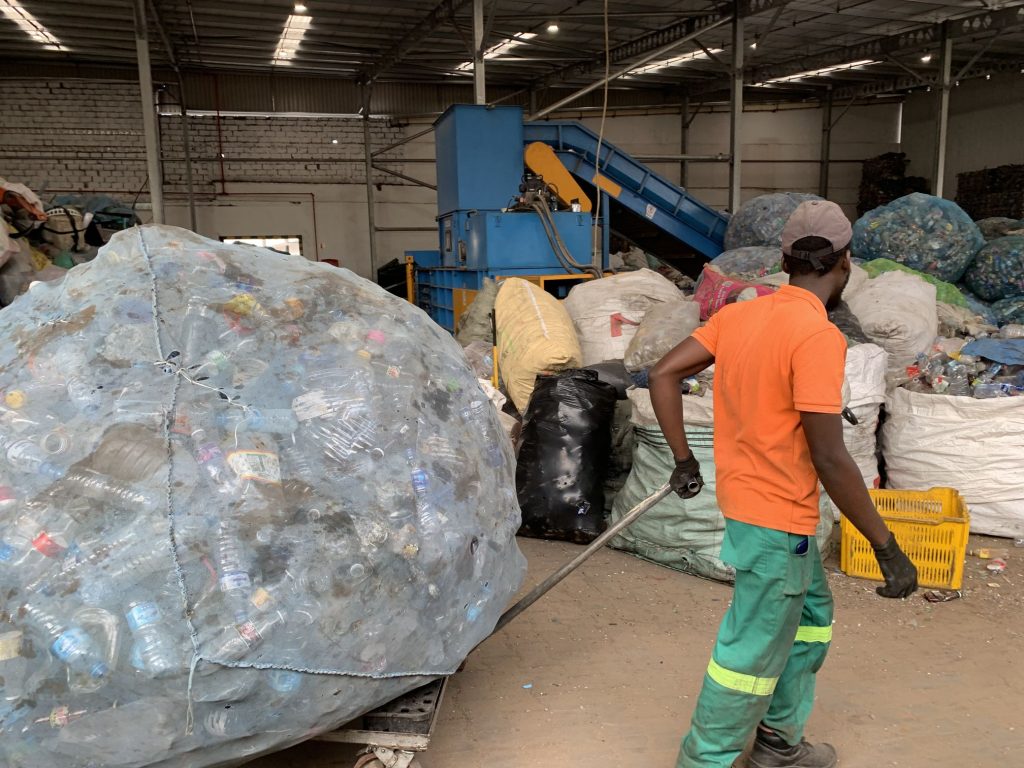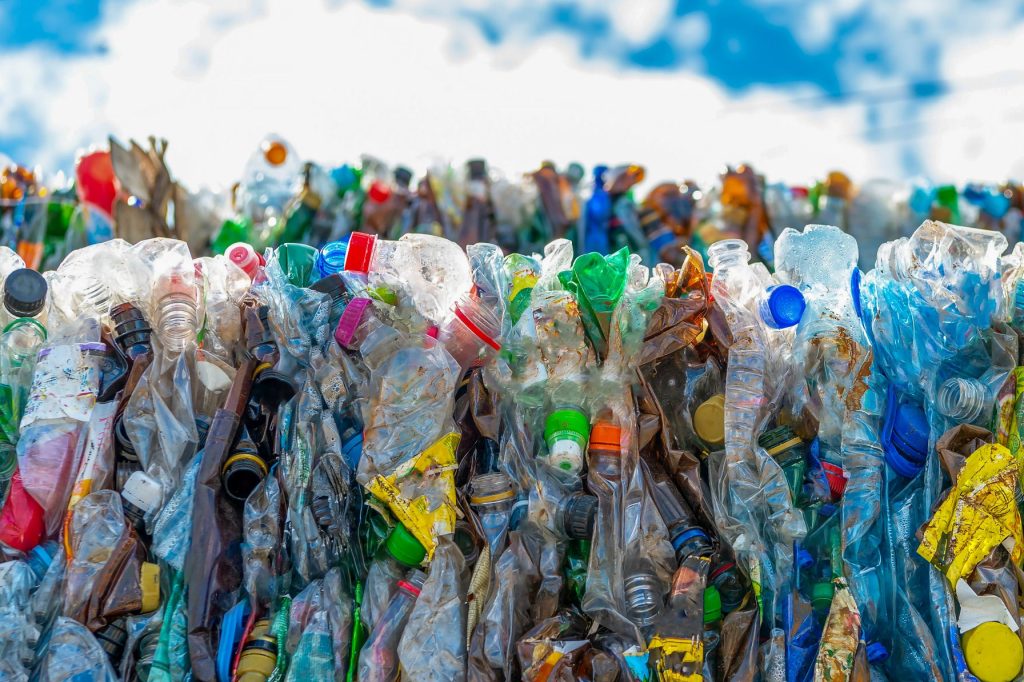Geneva, 4 August 2025 — As negotiators gather for what is expected to be the final round of the UN’s global plastics treaty talks, BVRio hosted an interactive roundtable to tackle a persistent structural challenge: the disconnect between international finance and the community-led waste recovery initiatives that are essential to addressing plastic pollution.
The event brought together a diverse group of stakeholders from across the waste value chain — including funders, project developers, international organisations, and government representatives — to explore how BVRio’s Circular Action Hub (CAH) can better serve them and act as a bridge between global capital and inclusive circular economy action.
Pedro Moura Costa, BVRio’s Director and co-founder, led the session, presenting the platform’s end-to-end services designed to support circular economy projects, from due diligence and traceability via the Kolekt app, to independent verification and the Hub’s public impact registries. He underscored the importance of building credibility, ensuring fair remuneration of waste pickers, and preventing double-counting through the Circular Credits Mechanism.
“We see a growing demand from companies and donors for credible environmental claims,” said Pedro. “Our goal is to enable verified, outcome-based contributions that go beyond compliance and deliver real, measurable impact at the community level. We’re not just building a platform. We’re building a bridge between needs and resources, between communities and systems, between ambition and impact.” said Moura Costa.
Participants raised a range of implementation challenges, from inconsistent plastic credit pricing to insufficient operational funding for waste management infrastructure.
Frank Van Woerden, World Bank Lead Environmental Engineer, noted the difficulty of aligning community-based projects with national financing mechanisms and stressed the need for day-to-day operational support, not just one-off investments.
Steffen Blumen, GIZ Project Manager at Prevent Waste Alliance, highlighted the wide discrepancies in plastic credit pricing across the market, with costs varying by a factor of ten depending on collection standards and waste source, and stressed the need for minimum requirements and greater pricing transparency. He also commended the platform’s potential to support capacity-building in countries developing EPR systems.
Allison Lim, Alliance to End Plastic Waste V-P, Corporate & Public Affairs, emphasised the need to fund integrated waste management systems that go beyond capital investment to include service delivery and behaviour change. She noted that while infrastructure is easier to justify to funders, operational costs remain a challenge, particularly in contexts where local governments are unfamiliar with ongoing service funding models.
The discussion also touched on the importance of project visibility for brands, with corporate participants calling for clearer communication tools and tailor-made project components to support sustainability disclosures and branding efforts.
Francesco Notari, Head of Sustainability at Ogyre, stressed that while sustainability disclosures matter, many corporate funders are increasingly focused on brand visibility. “We need more tailor-made project features that allow funders to associate their brand identity with the initiatives they support.”
Pedro also raised the idea of creating a “Prototype Plastic Fund”, a pooled investment vehicle inspired by the World Bank’s Prototype Carbon Fund that kick-started carbon markets in the early 2000s’. The objective of such a fund is to aggregate contributions from multiple stakeholders to deliver impact at scale through professional management.
BVRio continues engagement at INC-5.2 negotiations in Geneva
BVRio Circular Economy team Maria Accioly, Pedro Moura Costa and Nastassia Romanó will be attending the INC throughout the week, alongside BVRio partner and Kolekt Director, Thierry Sanders.
As a long-standing advocate and developer of inclusive waste management solutions, BVRio is participating primarily to champion the role of informal waste pickers and ensure they are recognised as a fundamental part of the mechanisms designed to accelerate plastic collection and recycling, particularly of plastics already in the environment.
BVRio brings to the negotiations its experience supporting EPR regulations with eight governments across Asia, Africa, and Latin America; over 12 years of work with waste picker cooperatives in Brazil, Southern Africa, and Asia; the creation of the Circular Action Hub, the world’s largest directory of local waste solutions delivering social impact; and the development of the Kolekt app, which connects over 10,000 active waste pickers to buyers and recyclers.
As an official observer of the talks, BVRio has submitted a formal statement, available in full on the UN website.



